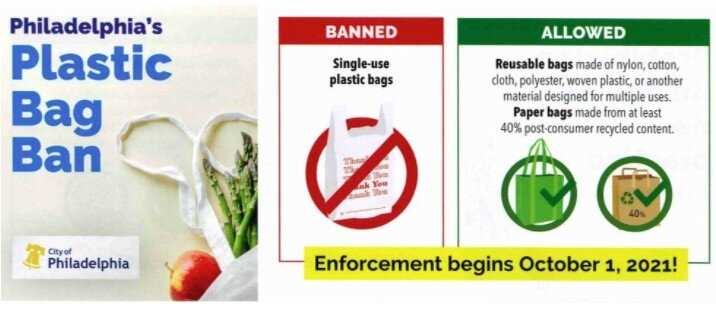
In recent years, cities around the world have taken action to reduce the use of single-use plastic bags, and Philadelphia is no exception. The history of Philadelphia’s plastic bag ban is one of determination and environmental stewardship. By implementing this ban, the city has made significant strides towards reducing plastic waste and promoting a more sustainable future.
The journey towards banning plastic bags in Philadelphia began in 2009 when City Council member Michael Nutter first introduced legislation to discourage their use. However, it wasn’t until 2019 that the ban officially took effect. This delay was due to extensive research and careful consideration of the best way to implement the ban without causing undue burden on businesses or residents.
The plastic bag ban in Philadelphia is comprehensive and far-reaching. It prohibits retailers from providing single-use plastic bags to customers at checkout. Instead, shoppers are encouraged to bring their own reusable bags or pay a small fee for paper bags, which are made from recyclable materials. This approach helps to incentivize the use of sustainable alternatives while also reducing waste and the impact on the environment.
Since the ban was implemented, Philadelphia has seen a significant decrease in the consumption of plastic bags. This success can be attributed to the city’s efforts to educate the public about the importance of reducing plastic waste and providing resources to support the transition to reusable alternatives. The ban is not just about changing behavior; it is about fostering a culture of sustainability and creating a cleaner, greener future for Philadelphia.
- The Origins of Philadelphia’s Plastic Bag Ban
- Early Discussions and Research
- Public Engagement and Legislative Efforts
- Implementation and Impact
- Early Awareness of Environmental Impact
- Environmental Organizations
- Legislative Actions
- The Drive for Sustainability
- Public Awareness
- Collaboration with Businesses
- Legislative Action and Public Support
- Implementation Challenges and Successes
- Economic and Environmental Benefits
- Reduction in Plastic Waste
- Promotion of Reusable Bags
- Cost Savings for Retailers
- Positive Impact on Tourism
- Job Creation
- The Future of Philadelphia’s Plastic Bag Ban
- 1. Expansion of the Ban
- 2. Enforcement and Compliance
- Q&A:
- When did Philadelphia implement the plastic bag ban?
- Why did Philadelphia decide to ban plastic bags?
- What are the alternatives to plastic bags in Philadelphia?
- Has the plastic bag ban been successful in reducing plastic waste in Philadelphia?
- Are there any exemptions to Philadelphia’s plastic bag ban?
The Origins of Philadelphia’s Plastic Bag Ban
Philadelphia’s plastic bag ban was implemented as a response to the growing concern about the environmental impact of single-use plastic bags. The city recognized the need to reduce plastic waste and promote more sustainable alternatives.
Early Discussions and Research
The idea to ban plastic bags in Philadelphia was first raised in the early 2000s. Environmental groups and concerned citizens started advocating for a ban, citing the negative effects that plastic bags have on the environment, particularly on waterways and wildlife.
City officials began studying the issue and analyzing the potential impact of a ban. They looked at the experiences of other cities that had implemented similar measures, such as San Francisco and Seattle, and learned from their successes and challenges in reducing plastic bag usage.
Public Engagement and Legislative Efforts
After initial discussions and research, the city of Philadelphia sought public input on the proposed plastic bag ban. They held town hall meetings, conducted surveys, and gathered feedback from various stakeholders, including businesses, environmental organizations, and residents.
Based on the input received, city officials drafted legislation for the plastic bag ban. The proposed ban underwent several rounds of review and revisions before it was presented to the City Council for a vote.
Advocacy groups continued to push for the ban, organizing campaigns to raise awareness about the environmental impact of plastic bags and the benefits of reusable alternatives. Their efforts helped build support among the public and influenced the decision-making process.
Implementation and Impact
The plastic bag ban was officially implemented in Philadelphia in [insert year]. It prohibits retailers from providing single-use plastic bags to customers at checkout and encourages the use of reusable bags. The ban aims to reduce plastic waste, litter, and pollution in the city.
Since the implementation of the ban, Philadelphia has seen a significant decrease in the use of plastic bags. Consumers have switched to using reusable bags or opting for paper bags, which are subject to a fee. The city has also introduced initiatives to promote the use of sustainable alternatives and educate the public about the importance of reducing plastic waste.
Overall, the plastic bag ban in Philadelphia has been successful in raising awareness about the environmental impact of plastic bags and encouraging a shift towards more sustainable practices. It serves as an example for other cities looking to implement similar measures.
Early Awareness of Environmental Impact
As early as the 1970s, concerns about the environmental impact of plastic bags were beginning to emerge. Studies showed that plastic bags were contributing to pollution, not only on land but also in the water. The lightweight nature of plastic bags made them prone to ending up in rivers and oceans, where they posed a significant threat to marine life.
In response to this growing awareness, various organizations and activists started advocating for the reduction and eventual elimination of plastic bags. They highlighted the dangers of plastic pollution and pushed for more sustainable alternatives. These early efforts laid the groundwork for future actions aimed at addressing the issue.
Environmental Organizations
Environmental organizations played a vital role in raising awareness about the environmental impact of plastic bags. They conducted research studies, organized cleanup initiatives, and lobbied for policy changes to reduce plastic bag usage. These organizations included Greenpeace, the Sierra Club, and the Natural Resources Defense Council (NRDC), among others.
Legislative Actions
Recognizing the need for a legislative approach, several cities and states started implementing policies to regulate plastic bag usage. Some imposed fees or taxes on plastic bags, while others initiated outright bans. San Francisco became the first U.S. city to ban plastic bags in 2007, paving the way for other municipalities to follow suit.
Philadelphia’s plastic bag ban, introduced in 2020, was a result of these collective efforts to address the environmental impact of plastic bags. It aimed to reduce plastic waste and promote the use of reusable bags, ultimately leading to a more sustainable future for the city.
The Drive for Sustainability
As concerns about the environmental impact of plastic bags grew, Philadelphia embarked on a journey towards sustainability. The city recognized the need to reduce single-use plastic bags and promote reusable alternatives as a way to protect the environment and conserve resources.
Public Awareness
The drive for sustainability in Philadelphia began with raising public awareness. Environmental organizations and local activists worked together to educate the community about the harmful effects of plastic bags on the ecosystem. They organized campaigns, workshops, and events to promote reusable bags and encourage residents to make the switch.
Collaboration with Businesses
Another key aspect of the sustainability drive was collaborating with businesses. Philadelphia reached out to retailers, grocery stores, and other establishments to encourage them to offer reusable bags and reduce their reliance on single-use plastics. The city provided resources, incentives, and support to help businesses transition to more sustainable practices.
Incentives and Initiatives
Philadelphia also introduced a range of incentives and initiatives to motivate residents and businesses to embrace sustainability. This included offering discounts or rewards for using reusable bags, organizing public events to promote eco-friendly practices, and implementing recycling programs to ensure proper disposal of plastic bags.
Impact and Future Goals
The drive for sustainability in Philadelphia has had a significant impact. The plastic bag ban has reduced the amount of plastic waste generated by the city, protecting the local environment and wildlife. However, the city continues to strive for even more sustainable practices. Future goals include expanding recycling programs, implementing stricter regulations, and promoting the use of biodegradable or compostable bags.
Legislative Action and Public Support
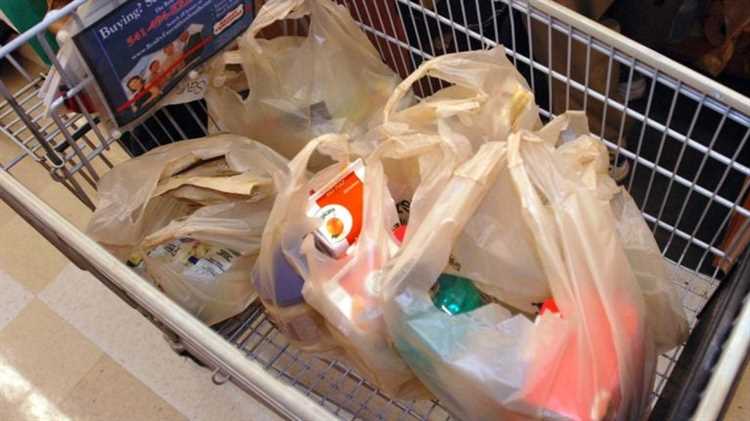
The journey towards implementing a plastic bag ban in Philadelphia began with legislative action and gained momentum through public support.
In 2009, City Council members introduced a bill that aimed to regulate plastic bags in the city. This bill was met with mixed opinions from various stakeholders, including retailers, environmental activists, and residents. Council members held public hearings and solicited feedback to understand the concerns and perspectives surrounding the proposed ban.
After thorough discussions and revisions, the bill gained significant support from the public and passed City Council with a majority vote in 2010. However, it faced legal challenges that delayed its implementation. The Pennsylvania Retailers Association filed a lawsuit questioning the legality of the ban, arguing that it should be determined at the state level rather than the local level.
Despite the legal challenges, public support for the ban continued to grow. Environmental organizations, local businesses, and residents organized awareness campaigns, educational events, and community clean-up drives to showcase the negative impacts of plastic bags on the environment. The efforts to spread awareness about the ban’s benefits and promote sustainable alternatives successfully mobilized the public.
In 2019, after a series of court battles, the Pennsylvania Supreme Court upheld the legality of Philadelphia’s plastic bag ban. The ruling marked a significant victory for the city and solidified the position of local governments in independently addressing environmental issues.
Since the ban’s implementation, public support remains strong. Surveys indicate that a majority of residents support the ban and are willing to adapt to more sustainable alternatives. The ban has also encouraged business owners to explore eco-friendly packaging options and reduce their reliance on single-use plastics.
Overall, the legislative action taken by Philadelphia’s City Council, coupled with the overwhelming public support, has led to the successful implementation and ongoing enforcement of the plastic bag ban. The ban serves as a model for other cities and communities around the world seeking to reduce plastic waste and promote environmental sustainability.
Implementation Challenges and Successes
Implementing a plastic bag ban in Philadelphia posed several challenges, but also resulted in several successes.
One of the main challenges faced was resistance from certain businesses and individuals who were accustomed to using plastic bags. Many arguments were made against the ban, including concerns about increased costs for businesses, inconvenience for consumers, and potential job losses. However, the ban was ultimately implemented with the support of environmental organizations, elected officials, and public opinion.
Another challenge was ensuring compliance with the ban. The city faced difficulties in monitoring and enforcing the ban, especially in the initial stages. There were instances where businesses continued to distribute plastic bags unnoticed, leading to delays in achieving the desired impact. However, the city’s commitment to educating and informing businesses and consumers about the ban helped improve compliance over time.
Despite these challenges, the ban has seen several successes. One of the main successes has been the significant reduction in plastic bag usage in the city. With the ban in place, businesses and consumers have adopted alternative bag options such as reusable bags, paper bags, and compostable bags. This has led to a noticeable decrease in plastic bag litter and pollution in the city.
Additionally, the ban has raised awareness about the environmental impact of plastic bags and encouraged individuals and businesses to make more sustainable choices. Many businesses have embraced the ban and made it part of their environmental sustainability efforts. This has not only contributed to the reduction of plastic bag usage but has also improved their public image as environmentally conscious entities.
In conclusion, implementing the plastic bag ban in Philadelphia presented various challenges, including resistance and compliance issues. However, it has also brought about significant successes, such as reduced plastic bag usage, increased environmental awareness, and improved sustainability practices among businesses and consumers.
Economic and Environmental Benefits
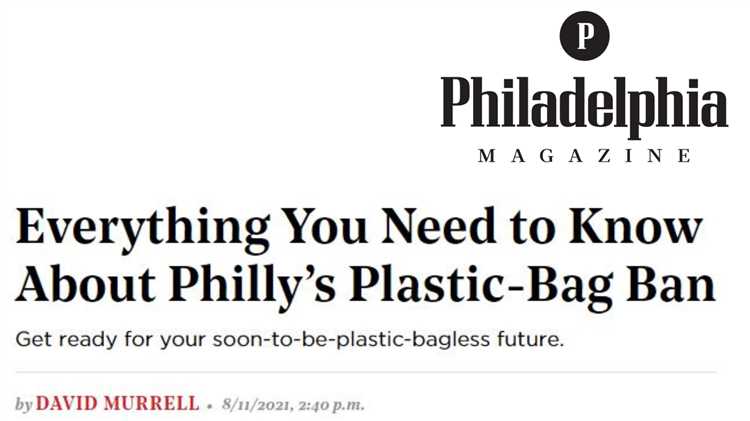
Philadelphia’s plastic bag ban has brought about both economic and environmental benefits. Here are some of the key advantages:
Reduction in Plastic Waste
One of the primary benefits of the plastic bag ban is the significant reduction in plastic waste. By discouraging the use of single-use plastic bags, the ban has helped to decrease the amount of plastic that ends up in landfills and the environment. This reduction has a positive impact on the overall health of ecosystems and wildlife.
Promotion of Reusable Bags
The ban has also encouraged the use of reusable bags, which has several economic and environmental benefits. Reusable bags are sturdier and can hold more items compared to single-use plastic bags, reducing the need for additional bags and reducing costs for retailers. Moreover, the promotion of reusable bags helps to decrease the demand for plastic bags, leading to less waste and a cleaner environment.
Cost Savings for Retailers
With the ban in place, retailers no longer need to provide and purchase single-use plastic bags for their customers. This reduction in plastic bag purchases can result in significant cost savings for businesses. Retailers can redirect these savings towards other operational expenses or pass them on to their customers through lower prices.
Positive Impact on Tourism
Philadelphia’s commitment to reducing plastic waste by implementing the bag ban has had a positive impact on the city’s reputation, particularly concerning sustainable practices. This reputation can attract environmentally conscious tourists who value destinations with forward-thinking environmental policies. The increase in tourism can provide economic benefits to local businesses and communities.
Job Creation
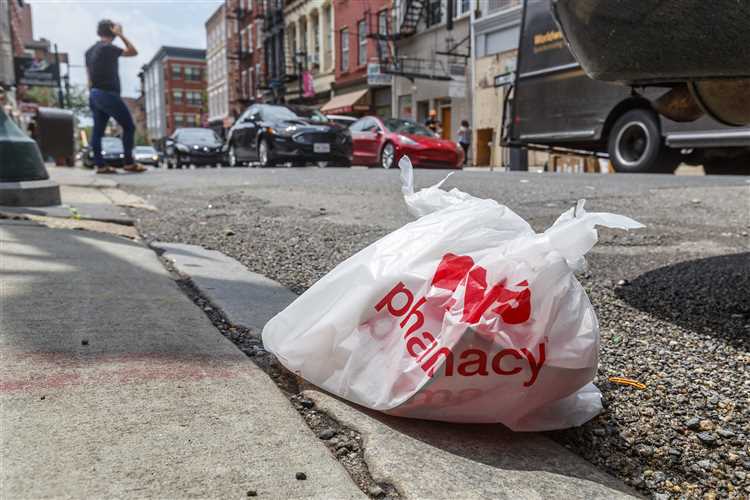
The shift toward reusable bags has created new job opportunities in the manufacturing and distribution of these bags. The production of reusable bags requires a more skilled workforce compared to plastic bag production, thus generating employment opportunities and contributing to the local economy.
In conclusion, Philadelphia’s plastic bag ban has resulted in a range of economic and environmental benefits. By reducing plastic waste, promoting the use of reusable bags, saving costs for retailers, attracting sustainable tourism, and creating new jobs, the ban has proven to be a positive step towards a cleaner and more sustainable future.
The Future of Philadelphia’s Plastic Bag Ban
The implementation of Philadelphia’s plastic bag ban has been a significant milestone in the city’s efforts to reduce plastic waste and promote sustainability. However, the future of this ban holds several potential developments and challenges.
1. Expansion of the Ban
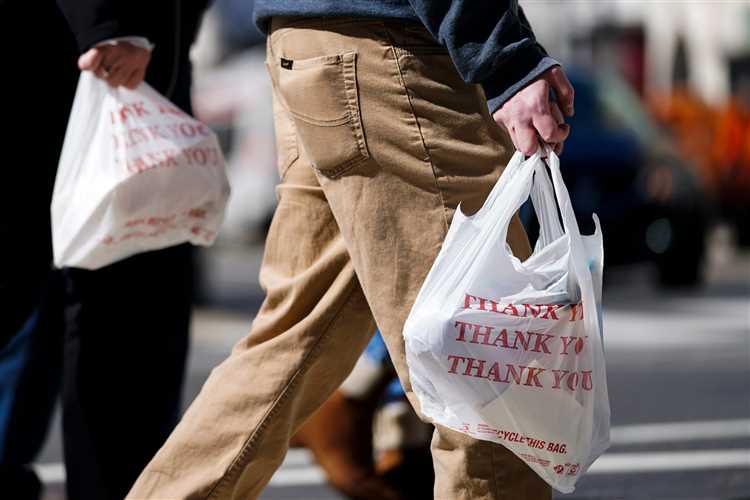
Currently, Philadelphia’s plastic bag ban only applies to businesses that have at least 1% of their sales in food items. However, there is a possibility that the ban may be expanded to include all businesses, regardless of the percentage of food sales. This would further decrease the usage of plastic bags and have a greater positive impact on the environment.
2. Enforcement and Compliance
One of the key factors in the success of the plastic bag ban is effective enforcement and compliance. Enforcement agencies and local authorities will need to closely monitor businesses and ensure that they are adhering to the ban. It will be crucial to educate businesses and consumers about the benefits of using alternatives to plastic bags and provide support in transitioning to more sustainable options.
Additionally, the city may consider implementing penalties or fines for businesses that fail to comply with the ban. This will create a stronger incentive for businesses to switch to more eco-friendly packaging and reduce the usage of plastic bags.
Overall, the future of Philadelphia’s plastic bag ban looks promising. With potential expansions and increased enforcement efforts, the city can continue to make progress in reducing plastic waste and preserving the environment for future generations.
Q&A:
When did Philadelphia implement the plastic bag ban?
Philadelphia implemented the plastic bag ban on July 1, 2021.
Why did Philadelphia decide to ban plastic bags?
Philadelphia decided to ban plastic bags as a way to reduce plastic waste and promote environmentally friendly alternatives.
What are the alternatives to plastic bags in Philadelphia?
Some alternatives to plastic bags in Philadelphia include reusable bags, paper bags, and compostable bags.
Has the plastic bag ban been successful in reducing plastic waste in Philadelphia?
It is still early to determine the long-term success of the plastic bag ban, but initial reports suggest a significant decrease in plastic bag usage and waste in the city.
Are there any exemptions to Philadelphia’s plastic bag ban?
Yes, there are some exemptions to Philadelphia’s plastic bag ban, such as bags for loose produce, prescription medication, and dry cleaning.